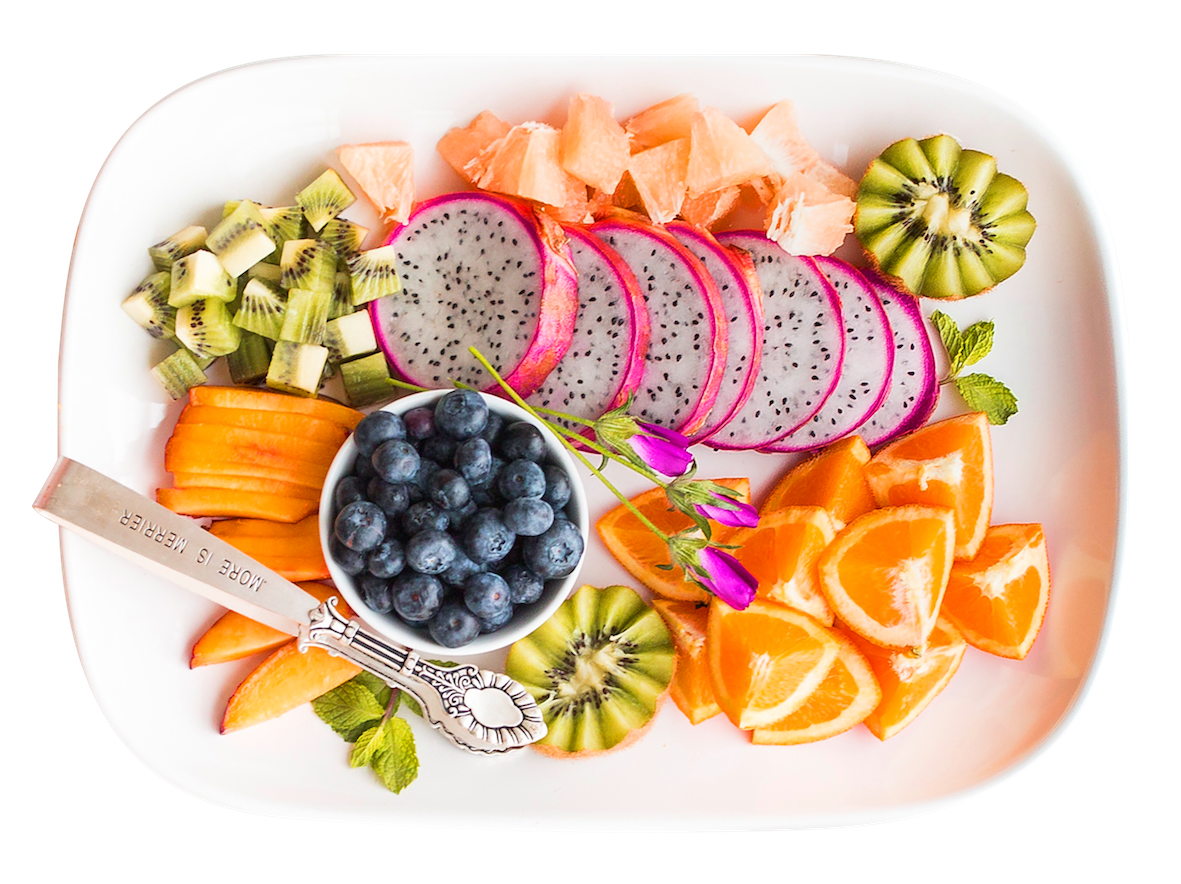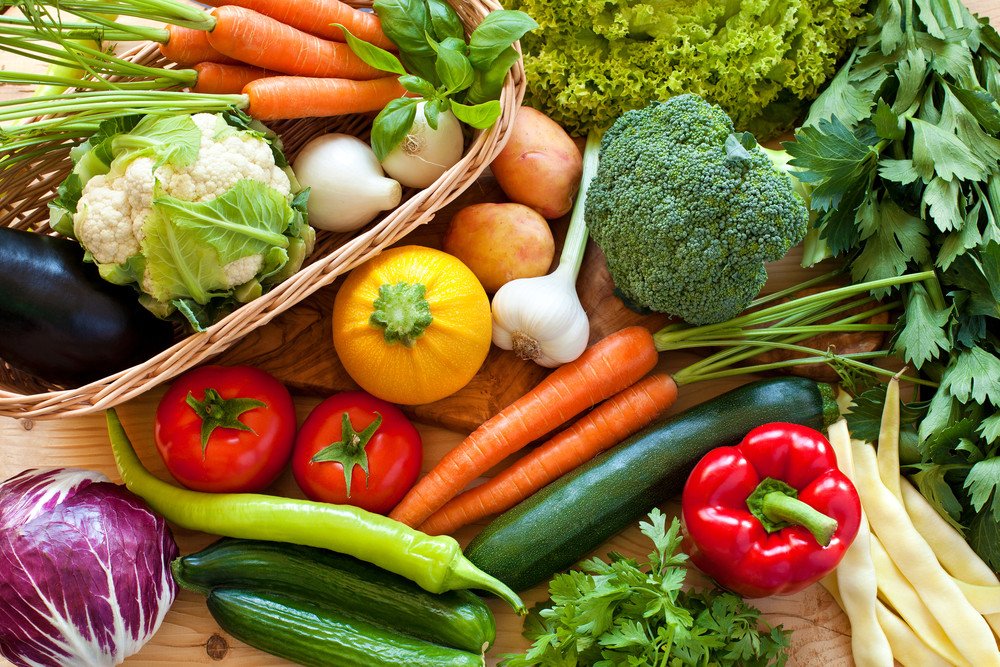Have you ever wondered how many fruits and vegetables are able to withstand the heat from the sun while they grow? Or how they’re able to fend off a variety of other environmental harms such as predator pests and pollution while still maintaining their physical and nutritional integrity? Well, a lot of this resilience has to do with the phytonutrients and phytochemicals they contain that are essential for our health too.
What are phytonutrients
‘Phyto’ is a prefix from Greek origin, meaning plant. So a phytonutrient is precisely what you think – a nutrient from a plant. However, they don’t only help protect and nourish plants, but can also provide significant health benefits to people who eat plant-based foods. While phytonutrients are not part of the group of nutrients essential for human survival – including: fats, proteins, carbohydrates, vitamins and minerals – they are very important for good health and preventing illness. Their two main claims-to-fame include their antioxidant and anti-inflammatory properties. (1)
How do antioxidants help you keep healthy?
It’s almost certain you’ve heard of antioxidants and know that they help keep you health. But how exactly do they do this? Well, antioxidants prevent a chemical process called oxidisation from occurring in your body’s cells – and various other cells for that matter as well. The reason why this is important, is because oxidisation can produce free radicals which can damage your cells’ integrity through a series of chain reactions. (2)
In higher amounts, free radicals have the potential to harm all the main parts of your body’s cells – including DNA and proteins. Once damage has been done, especially to your DNA, it can play a big part in cancer development as well as other health problems. (3)
How do phytonutrients fight inflammation?
F irstly, you must understand that inflammation goes far beyond a swollen limb from an injury – but hold onto that thought because it’s important. Inflammation is your immune response that gets triggered when it recognises a pathogen, damaged cells or even irritants within your body – so basically, anything it sees as threatening – and the repercussions it has on your health can be severe. (4) It’s not only injuries that cause inflammation, but various other external factors as well – one of which, is food. Yes, some foods are actually pro-inflammatory, while others are anti-inflammatory. (5) Foods that are anti-inflammatory have specific qualities that can block your body’s pro-inflammatory enzymes and genes. It just so happens, that food rich in phytonutrients contain all the inflammation-fighting properties you need. (6)
irstly, you must understand that inflammation goes far beyond a swollen limb from an injury – but hold onto that thought because it’s important. Inflammation is your immune response that gets triggered when it recognises a pathogen, damaged cells or even irritants within your body – so basically, anything it sees as threatening – and the repercussions it has on your health can be severe. (4) It’s not only injuries that cause inflammation, but various other external factors as well – one of which, is food. Yes, some foods are actually pro-inflammatory, while others are anti-inflammatory. (5) Foods that are anti-inflammatory have specific qualities that can block your body’s pro-inflammatory enzymes and genes. It just so happens, that food rich in phytonutrients contain all the inflammation-fighting properties you need. (6)
Where do you find phytonutrients?
Phytonutrients are definitely found in fruits and vegetables – but they are also abundant in whole grains, nuts and seeds, legumes and even tea.
The six most important phytonutrients for you to be aware of include: Resveratrol, carotenoids, ellagic acid, flavonoids, glucosinolates, and phytoestrogens.
- Resveratrol – this phytonutrient has gained a lot of hype over the last few years as it has great antioxidant and anti-inflammatory properties and is commonly found in grapes, and yes, red wine.
 Carotenoids – these are known for their antioxidant potency and provide yellow-red tones in fruits and veggies. They are particularly present in foods such as carrots, pumpkin, oranges, bell peppers and mangos.
Carotenoids – these are known for their antioxidant potency and provide yellow-red tones in fruits and veggies. They are particularly present in foods such as carrots, pumpkin, oranges, bell peppers and mangos.- Ellagic acid – this is another fantastic source of antioxidants that is commonly found in berries and fruits such as strawberries, blueberries and pomegranates.
- Flavonoids – there are quite a few phytonutrients that fall into this category. They include: catechins, commonly found in green tea; hesperidin, mainly found in citrus fruits; and quercetin, which you’ll get in cruciferous veggies, dark berries and tomatoes.
- Glucosinolates – these are yet another powerful cancer-fighting nutrients that are commonly found in cruciferous vegetables such as broccoli, sprouts, kale, spinach and horseradish.
- Phytoestrogens – this nutrient has some pros and cons to consider. While phytoestrogens have oestrogen-like effects within the body, meaning they can help prevent diseases such as osteoporosis, breast cancer and heart disease. They are also considered endocrine disrupters and can adverse effects on your health as well. It’s important to consider whether your body is lacking oestrogen before starting a diet rich in phytoestrogens – such as soy as well as sesame and flax seeds. (7)



 Carotenoids – these are known for their antioxidant potency and provide yellow-red tones in fruits and veggies. They are particularly present in foods such as carrots, pumpkin, oranges, bell peppers and mangos.
Carotenoids – these are known for their antioxidant potency and provide yellow-red tones in fruits and veggies. They are particularly present in foods such as carrots, pumpkin, oranges, bell peppers and mangos.![women [longevity live]](https://longevitylive.com/wp-content/uploads/2020/01/photo-of-women-walking-down-the-street-1116984-100x100.jpg)










